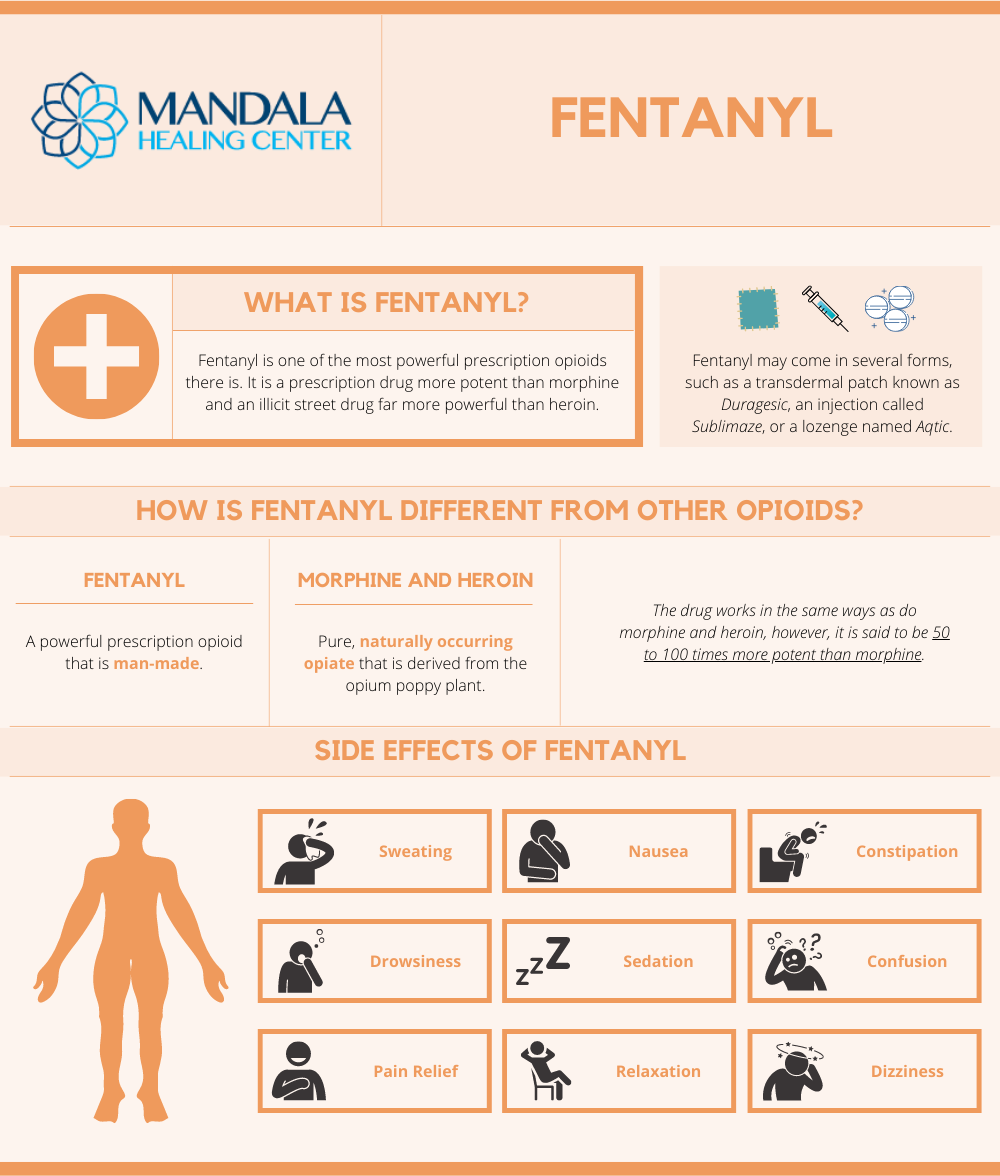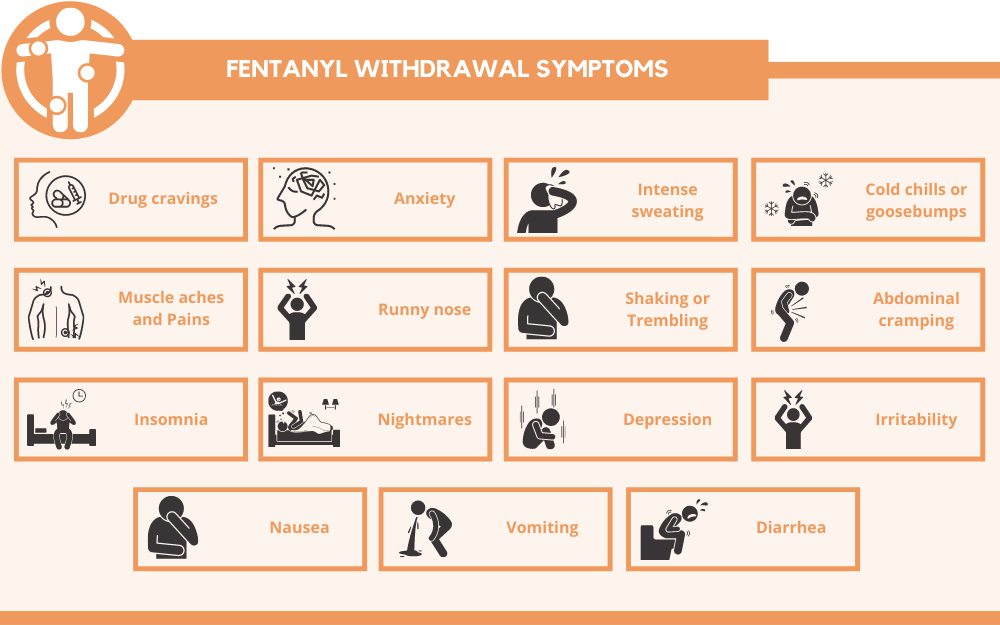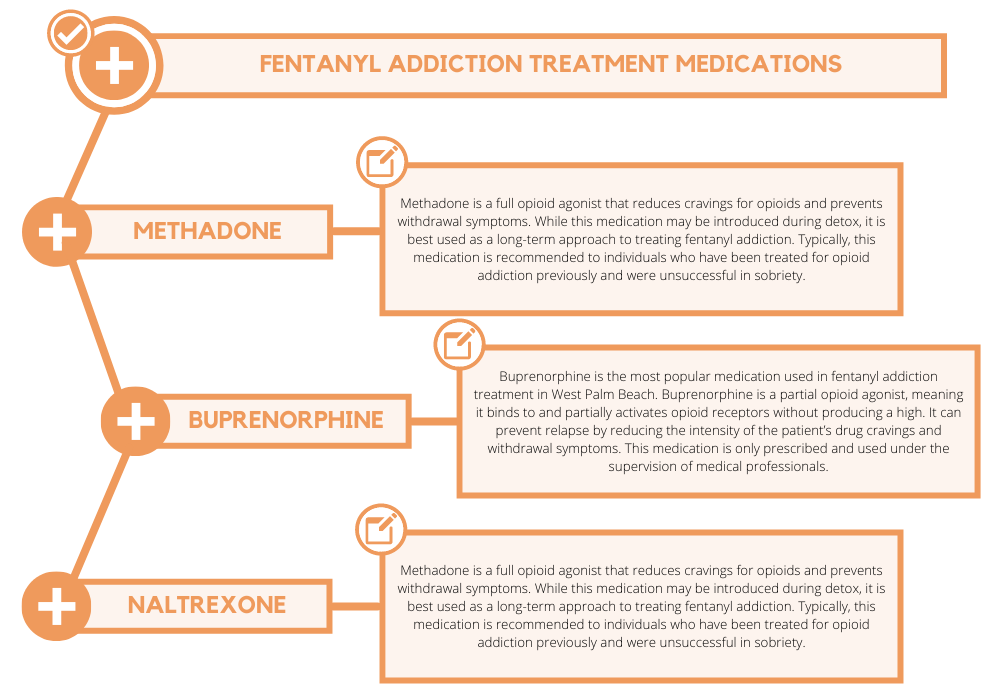Fentanyl is a powerful synthetic opioid that is 50 to 100 times more potent than morphine.[1] This drug is primarily used as a medication for severe pain or for patients with chronic pain who have become tolerant to other forms of opioid medications. However, fentanyl has made its way into the illegal drug trade, claiming the lives of many drug users worldwide.
Fentanyl abuse in America is a rising issue, causing extreme concern among addiction and substance abuse experts. When an individual abuses fentanyl, their risk of experiencing a life-threatening overdose is extremely high. Synthetic opioids like fentanyl killed more people in 2020 than any other year prior.[2]
While some individuals come into contact with fentanyl accidentally, others may begin to use the drug when they build a tolerance to other illicit opioids like heroin. Fentanyl works by binding to opioid receptors in the brain, which release feelings of euphoria while treating the symptoms of pain. This drug is highly addictive and extremely dangerous, making it vital for individuals to seek professional fentanyl addiction treatment as soon as possible.
The Signs of Fentanyl Addiction
Fentanyl is a synthetic opioid, meaning it belongs to the same class of drugs as heroin and most prescription pain relievers. The symptoms of fentanyl addiction will mimic the symptoms of addiction to any opioid. The Diagnostic and Statistical Manual of Mental Disorders, 5th Edition (DSM-5), provides the criteria for diagnosing opioid use disorders.
According to the DSM-5, the 11 symptoms of fentanyl use disorder include:[3]
- Taking more fentanyl than needed or for a greater period than recommended
- Having a strong desire to quit abusing fentanyl, but being unable to
- Spending most of one’s time and energy on obtaining fentanyl, using it, and recovering from its use
- Experiencing urges or cravings to use fentanyl
- Being unable to complete personal responsibilities due to fentanyl abuse
- Continuing to abuse fentanyl despite facing consequences
- Withdrawing from work, school, or social activities to abuse fentanyl
- Continuing to abuse fentanyl even when danger is present, such as driving under the influence
- Using fentanyl even though it worsens a psychological or physiological problem
- Developing a tolerance to fentanyl
- Experiencing symptoms of withdrawal when fentanyl used is ceased
Fentanyl addiction is extremely dangerous. Individuals who are addicted to the drug are at a high risk of experiencing an overdose. If an individual relates to the previously mentioned diagnostic criteria of fentanyl addiction, professional treatment is necessary.
Medical Detox for Fentanyl Addiction
When an individual is detoxing off of opioids, they will experience symptoms of withdrawal. While opioid withdrawal is less severe than alcohol or benzodiazepine withdrawal, the symptoms can be difficult to bear and, in severe cases, life-threatening. As a result, patients must detox before starting a fentanyl addiction treatment program in West Palm Beach. Medical detox, also known as medically-supervised detoxification, is a process that involves ridding one’s body of a substance with constant supervision and the use of medications when needed.
Medical detox for fentanyl addiction involves the use of opioid treatment medications to soothe symptoms of withdrawal. Patients may be given clonidine, methadone, or buprenorphine to lessen the effects of withdrawal. This allows patients to complete detox and move on to the next phases of recovery.
Medication-Assisted Treatment (MAT) for Fentanyl Abuse and Addiction
Once an individual has completed medical detox, they can move on to treatment. Opioid addiction is usually treated using medication-assisted treatment (MAT). MAT combines evidence-based treatment with the use of FDA-approved medications to prevent relapse and promote long-term recovery from addiction. It is important to note that medication-assisted treatment must include behavioral therapies and other traditional addiction treatment techniques for it to be successful.
Three of the most widely used medications during fentanyl addiction treatment in West Palm Beach are:[4]
Methadone
Methadone is a full opioid agonist that reduces cravings for opioids and prevents withdrawal symptoms. While this medication may be introduced during detox, it is best used as a long-term approach to treating fentanyl addiction. Typically, this medication is recommended to individuals who have been treated for opioid addiction previously and were unsuccessful in sobriety.
Buprenorphine
Buprenorphine is the most popular medication used in fentanyl addiction treatment in West Palm Beach. Buprenorphine is a partial opioid agonist, meaning it binds to and partially activates opioid receptors without producing a high. It can prevent relapse by reducing the intensity of the patient’s drug cravings and withdrawal symptoms. This medication is only prescribed and used under the supervision of medical professionals.
Naltrexone
Naltrexone is a medication that prevents individuals from experiencing the effects of opioids like fentanyl. This medication is only prescribed once an individual has completed the withdrawal phase of addiction recovery. Naltrexone is beneficial in preventing relapse because it stops individuals from feeling the “opioid high” that they crave when they attempt to use fentanyl. It can also help alleviate drug cravings.
Find Treatment for Fentanyl Addiction in West Palm Beach Today
Fentanyl addiction treatment programs in West Palm Beach use evidence-based therapies and FDA-approved medications to provide patients with the best chances of lifelong sobriety. At Mandala Healing Center, we emphasize the importance of a caring and safe treatment environment. From our retreat-like drug treatment facility to our highly experienced professional staff, we have what it takes to help you succeed.
If you or a loved one are struggling with fentanyl addiction, there is no better time to get help. Contact us today to speak with an admissions coordinator.
References:
- https://www.drugabuse.gov/publications/drugfacts/fentanyl
- https://www.drugabuse.gov/drug-topics/trends-statistics/overdose-death-rates
- https://www.asam.org/docs/default-source/education-docs/dsm-5-dx-oud-8-28-2017.pdf
- https://www.samhsa.gov/medication-assisted-treatment/medications-counseling-related-conditions#opioid-dependency-medications















